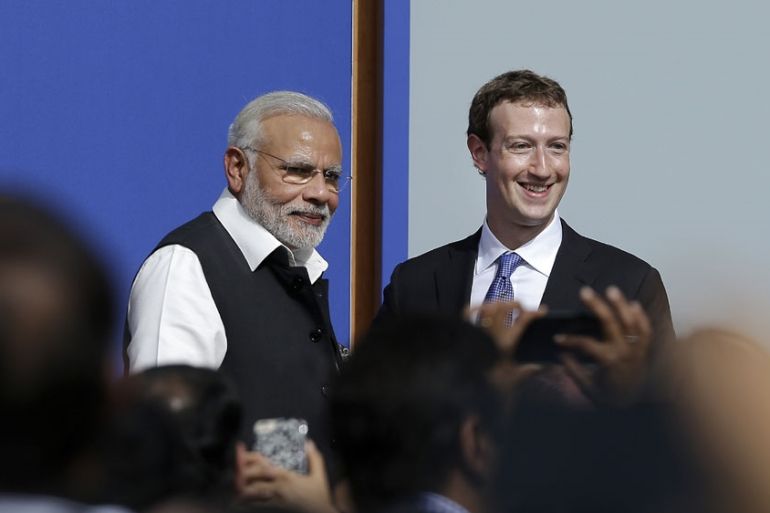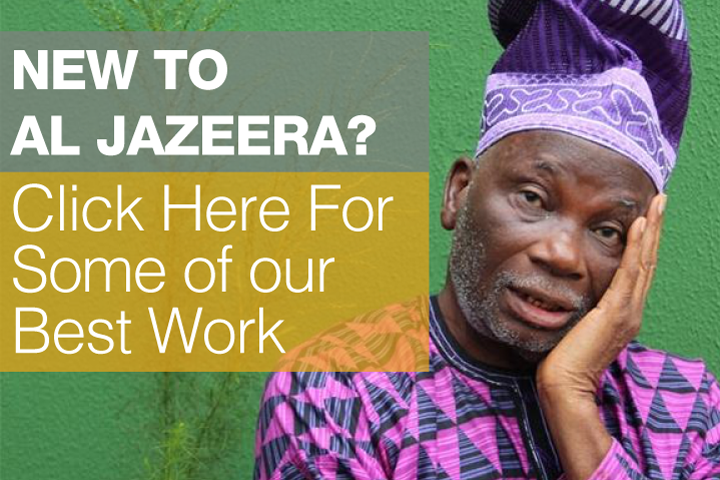Why is Facebook so eager to woo India?
Critics see Mark Zuckerberg’s India visit as a charm offensive to ensure Facebook’s contentious app is not banned.

Facebook co-founder and CEO Mark Zuckerberg took on India’s net neutrality activists head-on on Tuesday, arguing those pushing for full accessibility already have it.
Zuckerberg was answering questions at a townhall event at the New Delhi campus of the Indian Institute of Technology – the country’s premier engineering college.
Keep reading
list of 4 itemsHong Kong’s first monkey virus case – what do we know about the B virus?
Why will low birthrate in Europe trigger ‘Staggering social change’?
The Max Planck Society must end its unconditional support for Israel
The Indian government is considering drafting new regulations for net neutrality after a government report suggested Facebook’s Free Basics – formerly known as internet.org – violates the idea that all internet content must be accessible without favouritism.
Free Basics is an app that gives users free access to a number of websites, including Facebook.
Net neutrality activists argue Free Basics splits the internet into two: A whole internet that users have to pay data charges for; and a free, stripped-down internet that promotes a few websites, thereby giving them advantage over competition and creating monopolies.
“There are millions of people in India who do not have access to internet. Those who have access to it, start taking it for granted,” Zuckerberg said.
Charm offensive?

Yet, many wonder why Facebook is hard-selling Free Basics if it is merely a philanthropic exercise.
Zuckerberg visited India to launch internet.org a year ago and hosted India’s Prime Minister Narendra Modi at the Facebook headquarters just a month ago.
In this visit, he will also be meeting Indian government officials who are under pressure from net neutrality activists. Critics see this visit as a charm offensive to make sure Free Basics is not banned by Indian regulators.
Activists say Free Basics’ real purpose is to increase Facebook’s monthly active users. While Free Basics is not available in the United States, it is running with mobile carrier partners in 25 countries from Panama to Pakistan.
India is the most crucial market for Facebook with nearly one billion people not connected to the internet. With 130 million monthly active Facebook users, India is already the second largest user base for Facebook. A bulk of its targeted next billion users will undoubtedly come from India.
“There have been a lot of stories here in India that state that internet.org is limited internet – this isn’t the truth,” Zuckerberg said.
“The operators have spent billions of dollars on the infrastructure and so you cannot get the complete internet for free. So with Free Basics, we are letting developers offer zero-rated services. This is powerful. We are not being a filter of any content going through that.”
Not everyone agreed.
Nikhil Pahwa, editor of the website MediaNama and a leading net neutrality activist, said Zuckerberg’s claim is simply untrue. He quoted from Facebook’s terms and conditions: “Submission does not guarantee that your site[s] will be made available through the Free Basics platform.”
An open platform, Pahwa said, would be one where the platform does not decide what content gets included.
Digital divide
Zuckerberg said Free Basics has already brought the internet to 15 million people who would otherwise not have it.
“In terms of how it works, there are three reasons why people don’t have access: availability, affordability and awareness,” Zuckerberg said. “There are lot of places where internet infrastructure isn’t good. We are using solar-powered planes that can deliver connectivity. We have invested in satellites that will beam down connectivity.”
But Pahwa countered by describing Free Basics as “a false choice”.
|
|
| EU internet agreement with US violates privacy rights of Europeans |
Pranesh Prakash, a researcher at the Centre for Internet and Society in Bangalore, is in favour of taking a more nuanced view of Free Basics and other such “zero-rating services”.
“Since Facebook states it doesn’t pay the Internet Service Provider [in money or in data], and none of the content providers for Free Basics pay either, it is essentially the ISP that is incurring the subsidy,” Prakash told Al Jazeera.
“The only way the ISP makes money is if people start buying data packs, and go beyond the walled garden of Free Basics. So whether we should allow it or not is an empirically testable question: Are people remaining stuck within Free Basics – or are the moving on? If they are, then the harms from Free Basics are very limited and it should not be banned.”
Free Basics in India is available with only one telecom operator, Reliance Communications, which calls it FreeNet and advertises the promise of free Facebook.
Ankhi Das, Facebook’s public policy director for South and Central Asia, told Al Jazeera that Reliance’s data shows in regions where Free Basics is available, the rate of new people coming online is twice that of areas where it is not.
“That is a remarkable success story – and we believe we can improve on these numbers,” she said.